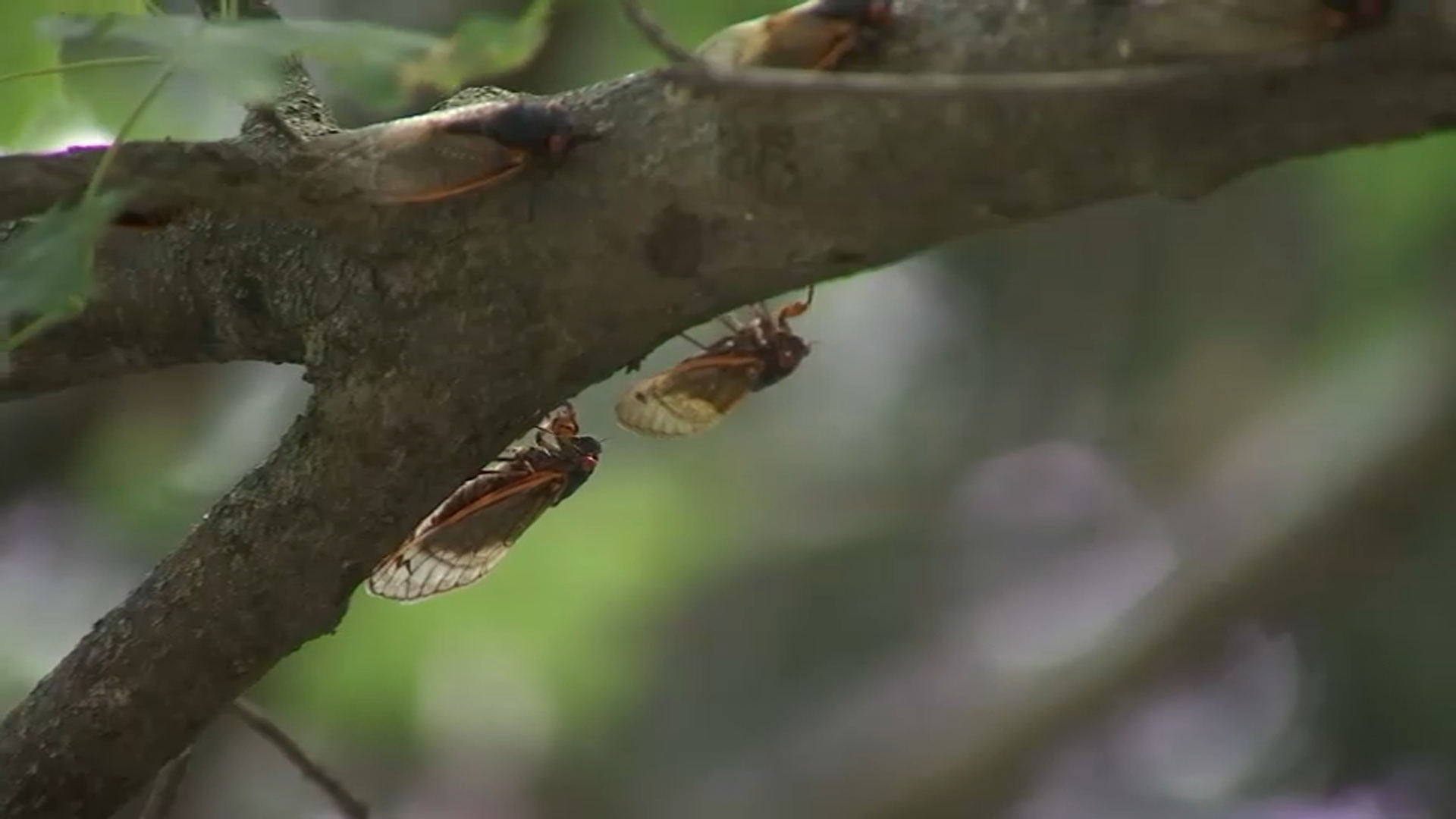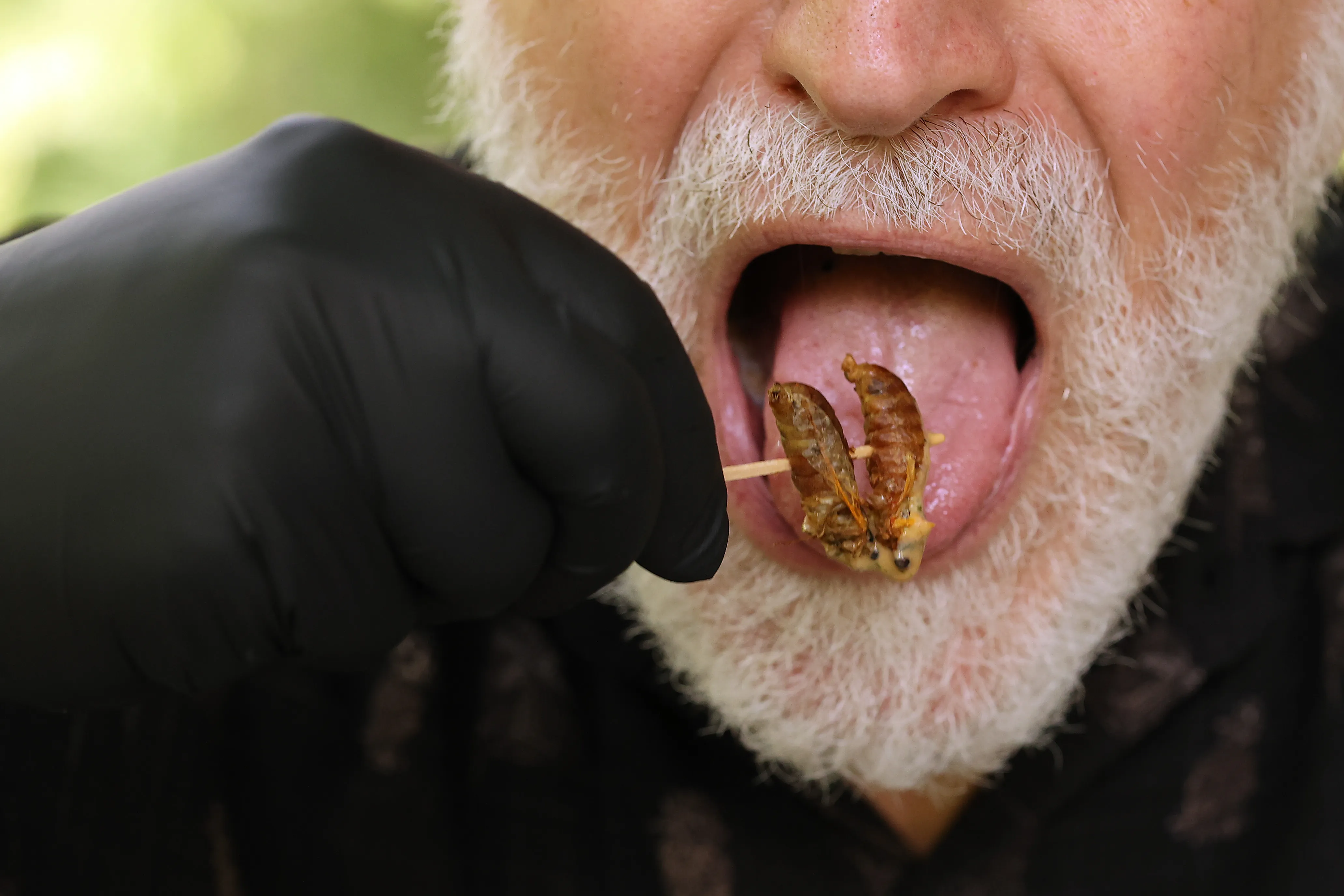Billions of cicadas are expected to emerge this spring in an occurrence that has been described as "once in a lifetime" — and Illinois will be at the center of it.
The 2024 cicada explosion will see two different broods of cicadas — one that lives on a 13-year cycle and another on a 17-year cycle — emerging from underground at the same time.
The rare dual emergence hasn't happened since 1803.
"While any given 13-year brood and 17-year brood can occasionally emerge at the same time, each specific pair will see their cycles aligned only once every 221 years," NBC News reported. "What’s more, this year’s cicada groups, known as Brood XIII and Brood XIX, happened to make their homes adjacent to one another, with a narrow overlap in central Illinois."
That means Illinois will be in a unique position for this unique occurrence.
For the Chicago area, Brood XIII will be most seen in parts of northern Illinois and Indiana, and possibly even in Wisconsin and Ohio, in late May 2024, Dr. Gene Kritsky, dean of Behavioral and Natural Sciences at Mount St. Joseph University in Cincinnati said in a 2023 press release.
According to an article from the University of Illinois Urbana-Champagne Extension, the Northern Illinois Brood's emergence typically occurs in May and June, and lasts approximately four weeks. Although mostly harmless, the noise of the insects can be disruptive, the university said. Additionally, eggs from adult cicadas on twigs and shoots could cause "substantial damage" in newly planted orchards.
And the Northern Illinois Brood itself is huge, with a reputation for the "largest emergency of cicadas anywhere," according to the university.
In 1956, entomologists reported as many as 311 "emergence holes" per square yard in a forested floodplain near Chicago, which experts say translated to 1.5 million cicadas per acre, according to the University of Illinois.
Feeling out of the loop? We'll catch you up on the Chicago news you need to know. Sign up for the weekly Chicago Catch-Up newsletter here.
"When the cicadas start dying and dropping from the trees later in the spring, there are large numbers on the ground, and the odor from their rotting bodies is noticeable," U of I reports. "In 1990, there were reports from people in Chicago having to use snow shovels to clear their sidewalks of the dead cicadas."
Meanwhile, Brood XIX cicadas have a more widespread population, covering parts of Missouri, Illinois, Louisiana, North Carolina, Virginia and Maryland.
In 2028, the Mississippi Valley Brood known as "Brood XXIII" are expected to emerge in Southwestern and Southeastern Illinois, though some "stragglers" from that bunch could also appear in 2024, the University of Illinois reported.
"Most of the state of Illinois will experience periodical cicada emergence in 2024," the university said. "Besides the noise, which may be substantial, this large group of insects is harmless and can be appreciated and enjoyed by nature lovers of all ages."
Male cicadas can reach decibels similar to a lawn mower or passing jet, and their numbers will be large, but their life cycle is short, at just four to six weeks. Then, the adults die but leave behind a new generation. Those nymphs will live underground until the year 2038.
In a year of full emergence, when the bugs surface, they quickly begin mating, which is often met with the noise most associate with cicadas.
“Once those cicadas are out of the ground, it’s all about romance,” Mike Raupp, Professor Emeritus of Entomology at the University of Maryland, previously said.
Cicadas don’t bite or sting and pesticides will not work on periodical cicadas, experts say.




